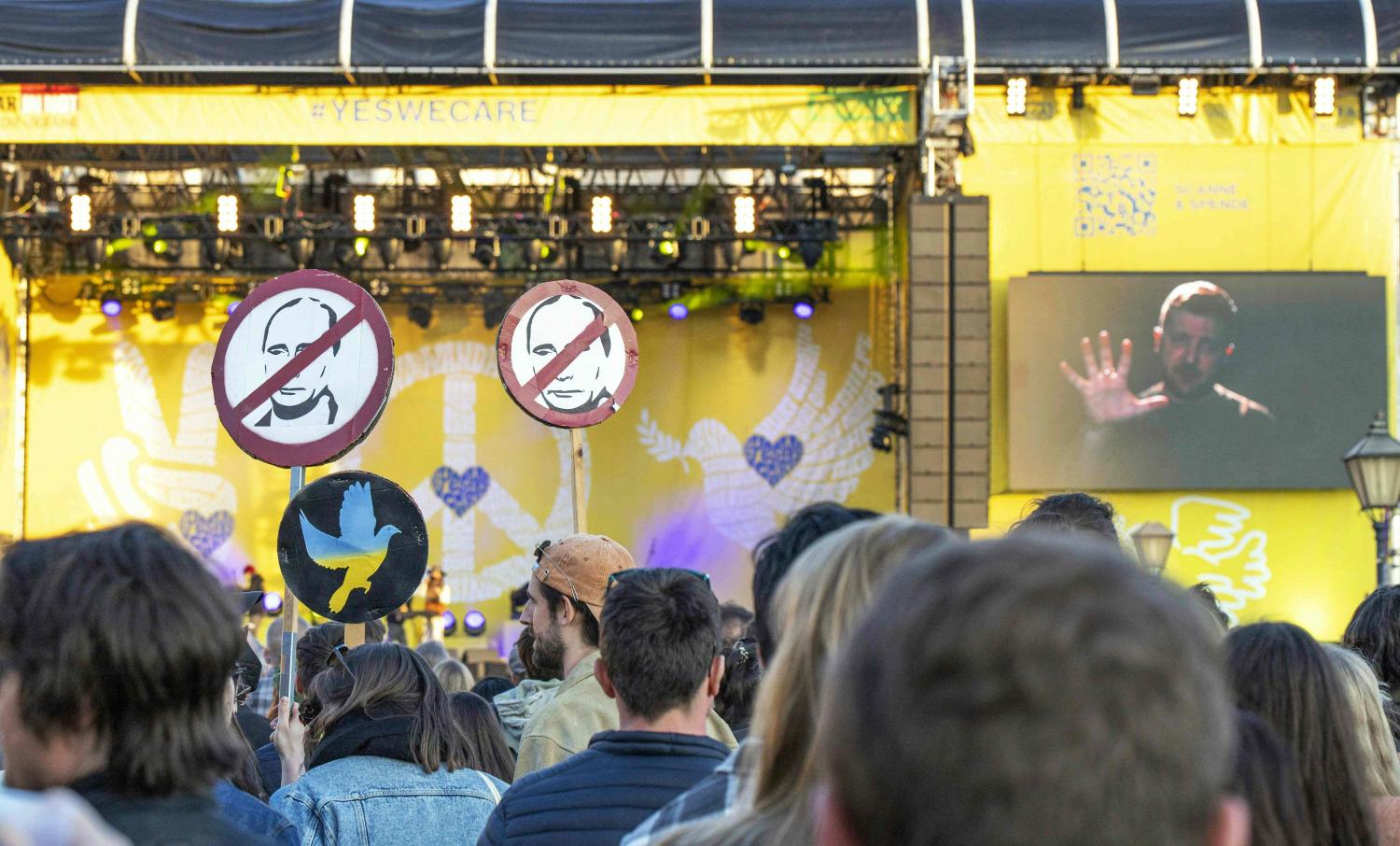
Five weeks into Russia's invasion of Ukraine, the tables are turning dramatically amidst the fog of war. As the Ukrainians have stood their ground better than anticipated, the Russians have been put on the back foot. The centre of gravity in the war now appears to be shifting eastward away from Kyiv towards Crimea and the Donbas region. As endgame discussions emerge, all major parties in the conflict are behoved to arrive at a viable settlement and common denominator without overplaying their hands.
At the outset of Russia's military advances into Ukraine on Feb 24, the odds were stacked against Kyiv and President Volodymyr Zelensky, a former entertainment figure with a low popularity rating at the time. Many understandably thought the mighty and battle-hardened Russian army with a larger force and superior weaponry would overrun Kyiv in a matter of days. Russia's war aims in the beginning seemed set on the capture of Kyiv and the ouster of Mr Zelensky.
It was widely seen that Russian President Vladimir Putin would have wanted regime change in Kyiv at a minimum and a succeeding puppet government that would be answerable to the Kremlin. With regime change and the overthrow of Mr Zelensky, the Russians could proceed to annex the whole or parts of Ukraine and ensure what's left of the country becomes a buffer between Russia and the members of the North Atlantic Treaty Organisation and the European Union. It seemed pointless for Mr Putin to invade Ukraine without changing its government.
While most scenarios in the first few days of the war implied a swift Russian victory, as evidenced by the United States' evacuation offer to Mr Zelensky at that time, few painted the potential outcome of a successful Ukrainian resistance. After all, Ukraine lost Crimea to Russia in 2014, its military no match for Russia's armed forces. But few foresaw what came next.
First, Mr Zelensky rose to the occasion of being an underdog wartime leader, refusing to leave Kyiv and vowing to fight to the end. Such bold leadership under extreme pressure from the Russian invasion became the Ukrainians' rallying cry. Ukraine's armed forces turned out to be better organised with more manpower and equipment than eight years earlier. Anecdotes of famous Ukrainian sports stars, such as Kyiv mayor and former heavyweight boxer Vitali Klitschko, further boosted local morale.
Second, the US, the EU and Nato crucially weighed in. Crippling sanctions were imposed against Russia. Led by the US, Nato countries also sent assorted arms, particularly shouldered-fired anti-tank and anti-aircraft missiles, to assist the Ukrainian armed forces. At the United Nations General Assembly, the Western alliance organised in early March a resolution to condemn Russia for its "aggression against Ukraine". It was approved by 141 countries, opposed by five (led by Russia), with 35 abstentions. Russia became internationally isolated.
Third, the Russian armed forces and war plans were not up to scratch, partly held back by stiff Ukrainian resistance. As days turned into weeks, Russian advances became bogged down. It became clear that no expeditious and overwhelming victory was on the cards. A clutch of Russia's commanding generals was killed in action, while morale among the rank-and-file ran low as Russian body bags mounted.
Unsurprisingly, as war conditions have deteriorated for them and the tide on battlefields is turning in Ukraine's favour, Russia has shifted its war aims to consolidate its gains and signalled its intention to negotiate. This is a critical juncture where a peace settlement may be on the horizon while the risk of escalation is still clear and present.
There have been talks since the war began that Mr Putin needs an "off-ramp" to cease hostilities and go home. While uncertainty and volatility abound, Russia's eastward shift may well suggest the Russian end of the bargain, namely control of the two Russia-recognised republics of Donetsk and Luhansk in the Donbas region as well as Crimea, probably including adjoining areas to connect Russian territorial proper with these claimed lands.
It will be a hard bargain for Ukraine to cede these territories that belonged to it until 2014, let alone recognise them as parts of Russia. Western governments may be tempted not to go along with this sort of territorial bargain in order to pile more pressure on Mr Putin for potential regime change in the Kremlin. The social media masses around the world will likely register their opposition to any kind of a "realpolitik" deal requiring concessions to Russia, which is widely perceived as the belligerent aggressor to begin with.
Russia's demands for security guarantees to ensure Ukraine's non-Nato neutrality and non-nuclear status will also be a sticking point because it would infringe on Kyiv's sovereignty. Having had counterattacking successes and fierce pushback, the Ukrainians may be emboldened not to give in another inch and be tempted to retake the Donbas region by force.
These delicate moving parts overlook the fact that Mr Putin has practically lost the war he started because his initial war aims are unmet. What the Russian armed forces are doing now is a rearguard action to consolidate and settle. Mr Zelensky has prevailed because there is unlikely to be a forced regime change in Kyiv at this point. Just five weeks ago, Mr Zelensky and his Ukrainian followers were struggling for survival. Now that they are going strong, they should not give in to temptations to go on the offensive.
The external powers, particularly the US and China, should seek this opportunity to facilitate and mediate, an end to the war. The Russians appear ready for it. The Ukrainians have to be convinced to make a deal even though it will be a second-best outcome for them. If this fragile situation is shattered with a wider war, all sides will lose more than what's been lost.
